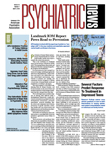“Some people predict that psychotherapy is not going to be a major part of psychiatry,” David Goldberg, M.D., the psychiatry residency training director at California Pacific Medical Center in San Francisco, said.“ I don't believe that to be true. But I do believe that psychotherapy is probably going to change. We are probably going to be teaching more focused, briefer approaches.”
Priyanthy Weerasekera, M.D., the postgraduate psychotherapy coordinator in the Department of Psychiatry at McMaster University in Canada, added,“ We may discover alternate therapies that are more effective; we may discover that we need to put certain therapies together....”
Deborah Cabaniss, M.D., director of psychotherapy training at Columbia University, noted, “People will be teaching new psychotherapies.”
“I think that technological advances that are emerging—say, simulated sessions that are computer generated—will be of help in psychotherapy training,” Donald Rosen, M.D., the psychiatry residency training director at Oregon Health and Science University, commented. “I also think that as psychiatry becomes more integrated with primary care [Psychiatric News, March 6], it will impact the types of psychotherapy that are taught.”
“Neuroscience is galloping along,” Cabaniss observed. “I think more and more synergy between psychotherapy and neuroscience will take place. In 10 years we may even have an understanding of what type of psychotherapy will be best suited to a patient based on PET scans of their brain.”
Indeed, “in 10 years we may have evidence to help us match psychotherapy to the patient and the problem,” Weerasekera said.
In view of such projected changes in the teaching of psychotherapy, will such teaching be more challenging to teach a decade from now than it is today? Rosen, Goldberg, and Cabaniss don't think so, while Weerasekera believes that it will be. “I have been teaching psychotherapy since 1995,” she observed, “and it is certainly more challenging today than in 1995 because the evidence has changed and because we teach more therapies.”
Julie Niedermier, M.D., who oversees the psychotherapy curriculum in the general adult psychiatry residency program at Ohio State University, also believes that “it will be more challenging a decade from now,” but for another reason: “If you look over the course of time, people's lives get more and more fast paced.” In short: both residents and patients will find it increasingly difficult to stop and reflect, to carve out time for psychotherapy.
Considering the projected changes in, and challenges of, teaching psychotherapy, how satisfying will it be a decade from now? “I think for somebody who seriously wants to see psychotherapy be a core of psychiatry and who is not ideologically driven, it will definitely be more rewarding,” Goldberg asserted, “because we will have more consensus ... [about] the core knowledge and skills that we want to teach in psychotherapy.”
“I don't see how it could be any more rewarding in 10 years than it is today, because I already enjoy it so much,” Rosen said. ▪
